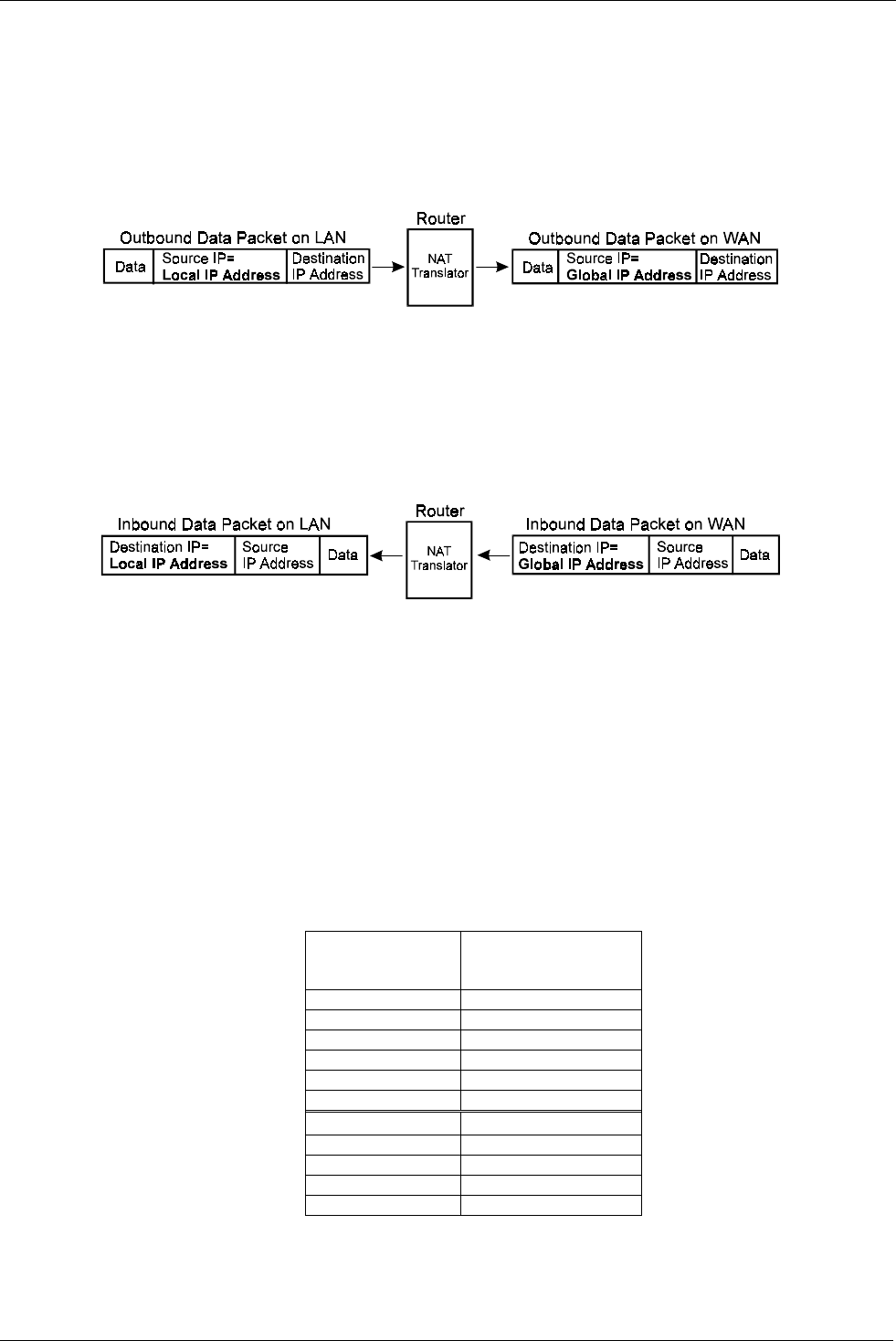
DI-1162/DI-1162M Remote Access Router
73
Please note that in the above diagram, the Gateway IP address settings for the local PC’s needs to be set to
192.168.100.1, the LAN IP address of the router.
NAT manipulates the IP addresses in packet headers on a one-to-one basis. An outgoing data packet (a packet
originating from a computer on the local LAN and destined for a computer outside the private network) will have
its IP address translated as shown below.
In the Outgoing Data Packet above, the
Source IP address
is the IP address that is translated by NAT. The
Destination IP Address
is the IP address of a computer outside the private network, on the Internet for example.
And the
Data
portion of the packet is the information payload borne by the packet, for instance a request to view a
web page.
The router logs the changes made to the IP header in its NAT table. The NAT table enables the router to send
replies back to the local computer as shown below.
In the Inbound Data Packet above, the
Destination IP Address
is the IP address that is translated by NAT. The
Source IP Address
is the IP address of a computer outside the private network. And the
Data
portion of the packet
is the information payload borne by the packet, in this case, web page contents.
The actual information in the NAT table depends whether the router is implementing NAT or NAPT.
NAT
This section discusses the NAT protocol as opposed to NAPT which is discussed in the next section.
NAT is the initial protocol set forth by RFC 1631 and provides a means in which private networks can
communicate with the Internet by using a small number of IP addresses. In our discussion, we will use the example
IP addresses listed in the table below and the network diagram shown at the beginning of this section.
Global IP Addresses
(for use with NAT)
Local IP Addresses
(assigned to computers
on the local network)
200.100.50.1 192.168.100.1
200.100.50.2 192.168.100.2
200.100.50.3 192.168.100.3
200.100.50.4 192.168.100.4
200.100.50.5 192.168.100.5
192.168.100.6
192.168.100.7
192.168.100.8
192.168.100.9
192.168.100.10
Please note that in the above table there are 9 users on the local network using 5 global IP addresses to access the
Internet.


















